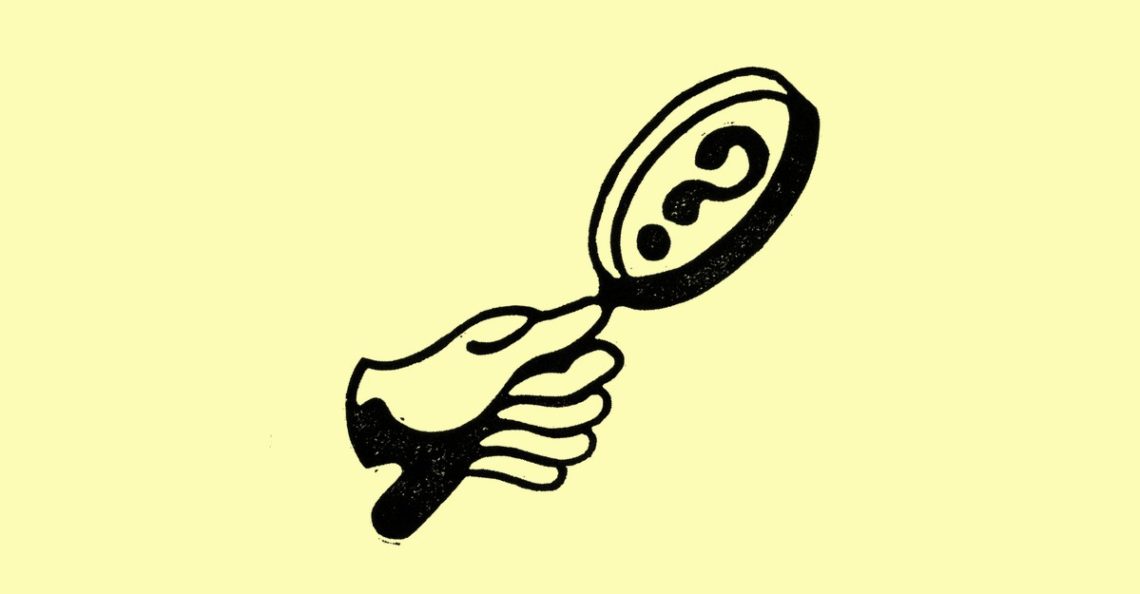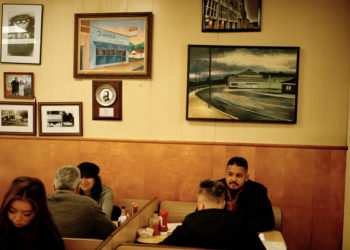Updated with new questions at 1:25 p.m. ET on November 6, 2025.
The 37-volume Naturalis Historia, written by the Roman naturalist Pliny the Elder, is the world’s earliest surviving encyclopedia. In the first century C.E., Pliny set out to collect the breadth of human knowledge, and millennia later, it’s still a great document for learning a little bit about everything. It has chapters on sugar, Germany, the rainbow, Cesarean births, the art of painting, and hypothetical antipodes.
It also makes delightfully apparent where Pliny’s most passionate interests lay: Consider the chapters “Elephants (Their Capacity),” “When Elephants Were First Put Into Harness,” “The Docility of the Elephant,” and “Wonderful Things Which Have Been Done by the Elephant.”
I hope you find a topic you enjoy just as much in this week’s trivia.
Find last week’s questions here, and to get Atlantic Trivia in your inbox every day, sign up for The Atlantic Daily.
Thursday, November 6, 2025
- Members of what ensemble known for its “gorgeous-gams showgirl look” must be between 5 foot 5 and 5 foot 10.5 while standing in stocking feet?
— From Julie Beck’s “The Pantsless Trend Reaches Its Logical Conclusion” - Twitter was three years old when it introduced what button (and the word it coined for it) that would become foundational to how the site worked?
— From Damon Beres’s “The Age of Anti-Social Media Is Here” - Former New York Governor Mario Cuomo originated the political adage that “you campaign in poetry” but “you govern in” what counterpart?
— From Jonathan Lemire’s “Mamdani Is the Foil Trump Wants”
And by the way, did you know that the city of New York was once called New Amsterdam? I assume so. But more important, did you know that it briefly changed to a third name after it had already been New York for nearly a decade?
The Dutch established New Amsterdam on Manhattan in 1625, and the English overtook it in 1664, renaming it New York. But then the Dutch won it back in 1673! They held it for only a matter of months—just long enough for the city to try out … New Orange. Then the Brits won it back, and it became evermore New York in 1674. (Apparently surfeited of fruit, the city didn’t become the Big Apple until at least the 1920s.)
See you tomorrow!
Answers:
- The Rockettes. Radio City Music Hall’s finest have long been all about the leg, and the rest of entertainment appears to be catching up, Julie writes in her examination of the garment she’s calling the “fashion diaper.” Read more.
- Retweet. It’s easy to think that the AI die is cast, but Damon notes that ChatGPT is three now, too, and should likewise be expected to continue refining itself. What seems advanced now will grow only more sophisticated—and harder to resist. Read more.
- Prose. Zohran Mamdani out-poetried Mario Cuomo’s son Andrew in the race for New York mayor. Now the prosaic challenges of governing, Jonathan argues, will be made even more difficult by the uniquely powerful enemy Mamdani has in Donald Trump. Read more.
How did you do? Come back tomorrow for more questions, or click here for last week’s. And if you think up a great question after reading an Atlantic story—or simply want to share a wild fact—send it my way at [email protected].
Tuesday, November 4, 2025
From the edition of The Atlantic Daily by Will Gottsegen:
- The ballooning of university GPAs as professors give higher and higher marks is a phenomenon known by what name?
— From Ian Bogost’s “Why Students Are Obsessed With ‘Points Taken Off’” - Some medical influencers suggest that inflammation can be cured with what bitter herb used to flavor absinthe and vermouth?
— From Jason Liebowitz’s “The Inflammation Gap” - Yoknapatawpha County is the fictional Mississippi setting of all but a few of the novels by what American author of the 20th century?
— From Michael Gorra’s “The Man Who Rescued [REDACTED]”
And by the way, did you know that the reason people shout “Geronimo!” when jumping from a great height is likely because one World War II–era Army private happened to see a movie about Geronimo the night before his first test jump? His fellow troopers said he’d be too scared the next day to even remember his own name; he did them one better.
It’s a shame the soldiers didn’t have the time to see something a little longer—another hour or so in the theater, and we could have all been screaming “Scarlett O’Hara!” every time we skydive.
Answers:
- Grade inflation. Harvard recently took a stab at solving the spiraling crisis, but undergraduates’ catastrophizing response showed just how intractable the battle between students and professors is, Ian writes. Read more.
- Wormwood. There is, it will not shock you to learn, not much in the way of evidence for this miracle cure. But, as Liebowitz writes, the frustrating, often inexplicable nature of autoimmune diseases and their accompanying inflammation—always inflammation—makes the easy answers of alternative medicine hard to resist. Read more.
- William Faulkner. We think of Faulkner now as a tentpole of the American literary tradition; Gorra argues that the American literary tradition exists as it does now only thanks to the critic Malcolm Cowley, who fostered Faulkner, John Cheever, Jack Kerouac, and more. Read more.
Monday, November 3, 2025
From the edition of The Atlantic Daily by David A. Graham:
- What president who assumed office after the 1901 assassination of William McKinley constructed the original West Wing and East Wing of the White House?
— From Neil Flanagan’s “White House Architecture Was an Honor System. Trump Noticed.” - What poetic meter consisting of 10 syllables per line was likely introduced to English drama by Christopher Marlowe and then widely popularized by William Shakespeare?
— From Isaac Butler’s “The Stubborn Myth of the Literary Genius” - In baseball notation, a strikeout is represented by what letter—flipped backwards if the batter goes out without swinging?
— From Steve Rushin’s “The Best Postseason in Baseball History?”
And, by the way, did you know that the Athletics’ (formerly of Oakland) mascot is—this one is for you, Pliny—an elephant? The origin of the mascot is a dig from a rival manager, who in the early 20th century said that the A’s had a “big white elephant on their hands” in the form of a roster of expensive and useless players. Those players and their fans took it in stride.
Answers:
- Teddy Roosevelt. The low-slung annexes respected the design of the original White House architect, James Hoban, and the project established a norm for protecting the historic character of the complex. But, as Flanagan writes, norms can always be ignored. Read more.
- Iambic pentameter. Shakespeare gets a lot of credit for inventiveness, but Marlowe was the more daring cultural vanguard, especially in the way he conducted his life—“probably gay, possibly a spy, often in trouble with the law,” Butler writes. It is therefore easy for histories of him to veer into myth. Read more.
- K. The Toronto Blue Jays pitcher Trey Yesavage notched 12 Ks in Game 4 of this year’s World Series—the most ever by a rookie in series history. Rushin writes that Yesavage was hardly the lone star in a postseason that proved baseball can still surprise. Read more.
The post Today’s Atlantic Trivia: Sayings and Showgirls appeared first on The Atlantic.




